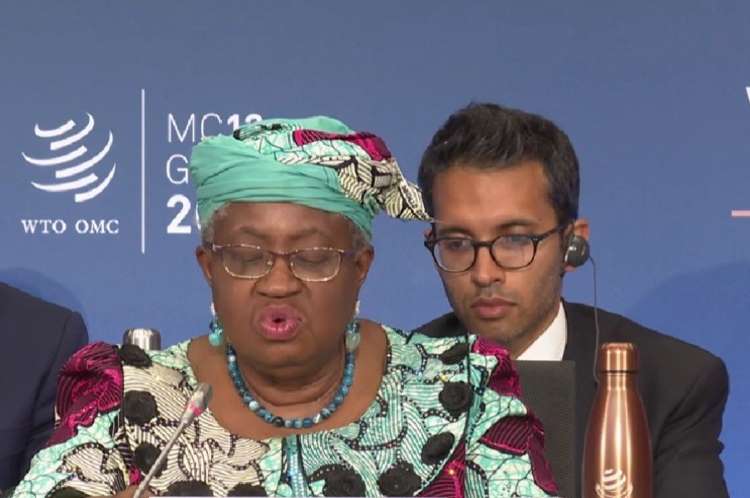
The Investment Facilitation for Development Agreement at the World Trade Organisation has become an area of dispute among member countries, exposing the complexities of international trade and investment policies. The global investment flows are characterised by their complexity and the myriad rules that govern it. FDI is a key driver of economic integration, allowing countries to access new markets, technologies, and skills. However, the regulatory environment for international investment has traditionally been fragmented and varied significantly from one jurisdiction to another. This fragmentation can deter investment, especially in regions where procedural opacity and bureaucratic inefficiencies prevail.
The IFD aims to address these challenges by establishing a harmonised set of practices that can facilitate smoother and more predictable investment flows. It targets not just the enhancement of investment volumes but also the quality of investments, aligning them more closely with sustainable development goals. The agreement recognises the need for a balanced approach that respects national policy space while providing the predictability and transparency that investors seek.
The push for the Investment Facilitation for Development Agreement at the WTO is led by a diverse coalition of more than 100 countries, highlighting a broad interest across different regions and levels of development. China has been a prominent proponent of the initiative, showcasing its keen interest in establishing a standardised global investment framework. This coalition includes a mix of developed, developing, and least developed countries (LDCs), demonstrating the widespread appeal of the proposal across various economic spectrums.
READ I WTO ministerial must mend the fractured trade order
What is the Investment Facilitation for Development Agreement
At its core, the IFD proposes a series of measures designed to streamline and simplify the investment process for foreign companies. This includes making the application processes more straightforward, reducing the time required for obtaining approvals, and ensuring that the rules and regulations governing investments are transparent and easily accessible. The agreement categorises its provisions into four main pillars.
Improving transparency: Governments are required to make all laws, regulations, and procedures related to FDI available publicly. This aims to reduce uncertainty for investors by providing them with clear and accessible information.
Streamlining administrative procedures: This pillar focuses on minimising bureaucratic hurdles by ensuring that the procedures for approving incoming FDI are efficient, transparent, and reliable. The goal is to eliminate unnecessary delays and costs associated with investment processes.
Enhancing cooperation: The agreement encourages cooperation both among WTO members and between governments and investors. This includes the exchange of best practices, maintaining contact points to respond to inquiries, and promoting sustainable investments through commitments to develop anti-corruption policies and encourage responsible business conduct.
Special and differential treatment: Recognising the varied capacities of countries, especially developing and least developed members, the IFD proposes a staggered implementation of its measures. Developed countries are expected to implement all rules upon the agreement’s entry into force, while others can schedule implementation based on their ability to do so, potentially with support for capacity building.
The IFD is not merely a set of rules but a framework intended to catalyse economic development by making it easier for countries to attract and retain foreign investment. It acknowledges the critical role that FDI plays in transferring technology, enhancing competitiveness, and creating employment opportunities, particularly in developing and least developed countries.
The significance of the IFD lies in its potential to reshape the global investment scenario. By establishing a standardised set of procedures for investment facilitation, the agreement could make it easier for countries to attract foreign direct investment (FDI), which is crucial for economic development and integration into the global economy. The agreement focuses on transparency, streamlining administrative procedures, enhancing cooperation, and providing special and differential treatment for developing and least developed countries. These measures are designed to address bureaucratic impediments and lack of transparency, which often hinder FDI flows.
READ I Big tech regulation: Lessons for India from Korean fiasco
Opposition to IFD deal
India, along with other countries, opposes the IFD for a number of reasons.
Beyond WTO mandate: Those who oppose IFD argue that investment does not fall within the core mandate of the WTO, which traditionally focuses on trade in goods and services. India, in particular, has expressed concerns that the IFD could dilute the multilateral nature of the WTO by allowing plurilateral agreements that are binding only on participating countries. This approach is seen as undermining the principle of consensus-based decision-making and weakening the organisation’s multilateral framework.
Concerns over sovereignty: There are fears that the IFD might disproportionately favour larger economies and limit the regulatory autonomy of countries to protect their national interests. Some developing countries worry that the agreement could constrain their ability to implement policies that prioritise sustainable and equitable development.
Legal and practical concerns: The opposition also stems from concerns about the legal basis of Joint Statement Initiatives (JSIs) at the WTO, the potential distraction from the Doha Development Agenda, and the implications of binding disciplines subject to dispute settlement proceedings. India and other opposing countries are apprehensive about committing to reforms that may require extensive capacity building and adjustments to domestic regulatory frameworks without sufficient support.
The IFD proposal remains a contentious issue within the WTO. The upcoming 13th WTO ministerial conference in Abu Dhabi is expected to feature further discussions on the matter, although the prospects for a concrete outcome remain uncertain. The opposition from key countries like India underscores the challenges in reaching a consensus on investment facilitation within the WTO framework. The negotiations will likely continue to evolve, reflecting the complex interplay between trade, investment, and development objectives in the global economy.
The Investment Facilitation for Development Agreement represents a crucial step in the ongoing debate over the role of investment in the WTO’s mandate and the broader implications for global economic governance. As discussions unfold, the perspectives and concerns of all member countries will be crucial in shaping the future of international investment policies.
